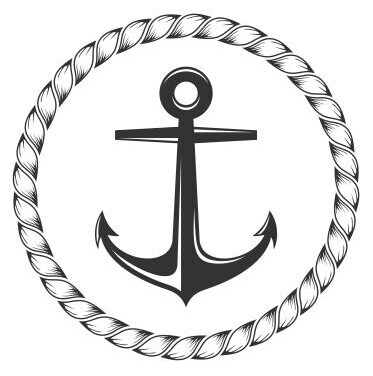Professional Qualifying Examinations (PQE)
The Professional Qualifying Examinations (PQE) form the pinnacle of the Institute’s qualification. Completion of these exams is an illustration of one’s developed knowledge and understanding of the commercial shipping industry. It comprises seven exams which you can do over five years. Out of these, 4 are compulsory and the remaining 3 can be chosen from a list of 12 optional subjects (please refer to the syllabus section on our website).
Many people complete in a much shorter time and are often also eligible for exemptions to some exams based on industry experience and prior qualifications. Exemptions don’t apply to the Diplomas, so if you are eligible for a few, it may make sense to start your journey with PQE.
Embarking on PQE will mean you can pick and choose how many exams to take from the syllabus. Once you have completed your PQEs you will be eligible to apply for membership with the Institute.
Compulsory subjects – group 1
These subjects are compulsory because they represent the fundamental underpinnings of all activity within the commercial shipping industry:
Introduction to Shipping
Legal Principles in Shipping Business
Economics of Sea Transport & International Trade
Shipping Business
Specialisms – group 2
These papers cover a wide range of practical shipping disciplines in considerable detail:
Dry Cargo Chartering
Ship Operations & Management
Ship Sale & Purchase 2017/18
Tanker Chartering
Liner Trades
Port Agency
Logistics & Multi-modal Transport
Port & Terminal Management
Offshore Support Industry
Shipping Law
Marine Insurance 2017/8
Shipping Finance
You will be matched with a job related to your discipline of study and undergo a 12 to 18 months structured training programme, depending on the sector and job requirements. The programme includes facilitated learning, on-the-job training and work-based projects, to allow you to deepen your skill sets at the workplace. Graduates from selected SkillsFuture Work-Study Programmes can be considered for advanced standing or credit exemption for the relevant degree programmes, subject to meeting the course entry requirements. Assigned mentors at the company will guide you and provide support in your continual skills development. You will also enjoy a well-structured career progression pathway, in line with the company’s talent development plan. At the end of the programme, you will receive an industry-recognised certification and potential wage progression or career advancement based on performance.
How will I benefit?
Individuals
You can get a head-start in your career by:
-
Acquiring relevant work experience and skills valued by the industry
-
Attaining industry-recognized qualifications/certification
-
The certificate for WSP of “Shipowning, Operating and Broking” is ICS Membership Certificate issued by ICS UK which is globally recognized.
-
-
Getting a sign-on incentive of S$5,000 (Singaporean Citizen only) when you are successfully placed in the Programme.
-
Receiving a competitive starting salary and full-time employment with participating companies
-
Deepening skills through structured workplace learning, mentorship, and facilitated learning
-
Enjoying skills-based wage increments and meaningful career advancement pathways upon programme completion and satisfactory job performance
-
Advanced standing or credit exemption for the relevant degree programmes in selected sectors, subject to meeting the course entry requirement
The selected trainees will be enrolled into the ICS PQE Program concurrently (includes the exams and training sessions) with on Job Training provided by the participating companies.
Courses Fee*
Remarks:
-
All the course fees and exam fees under this WSP programme will be born by the participating company.
-
MCF subsidy is applicable (up to 70%) for Tutorship/Classroom Training programme.
How to apply?
Starting Date: 1 July 2019
Ending Date: 31 March 2021
Program Duration: 18month (Includes studying with ICS and On Job Training).
INTERVIEW WITH A CHARTERED SHIPBROKER
1) What is your course of study? Institution? a. What are the re-requisites to apply for this course?
Professional Qualification Examinations at Institute of Chartered Shipbrokers (ICS). I had taken Diploma in Marine Engineering at Singapore Maritime Academy, then went for sailing for the past 5 years.
2) What encouraged you to pursue this?
I felt with extra qualifications, it would be advantageous for shore transition when the time inevitably calls for me to hang my cape and stop sailing
3) How much did you spent in total for the entire course? a. Is this course applicable to claim from MCF funding?
The examinations fees are all available on the website. Yes it is applicable to claim MCF if you take the classroom trainings.
4) How long was the entire duration of the course?
I needed to pass 7 entrance exams, I took 2 modules per year, so it took me about 3 years odd to complete the entire program.
5) What were the biggest challenges of doing this course?
Studying alone, as I do not know of any peers pursuing this program, therefore whenever I have questions or any issues in the learning process, I do not really have anyone to turn to.
6) In what aspect, do you feel this course has aided in your career? a. What are the benefits of completing this course?
Personally, I have always loved the entire maritime industry, not just seafaring itself. I marveled at how there are so many sectors within the industry, working together to make trading globally possible. Therefore, I hope to venture outside seafaring when I stop sailing and this program allowed me to learn more about other sectors such as: chartering, brokering, maritime law, finance, marine economics, etc.
7) Would you encourage other seafarers to take up this course? a. What advice would you give them?
Definitely, this course allow seafarers to know there are so many more paths available other than being superintendents or surveyors when they wish to transit to shore.
8) Is there any other courses you have in mind that you feel is beneficial to the career of a seafarer?
At the moment, I would encourage seafarers to take up maritime law.
